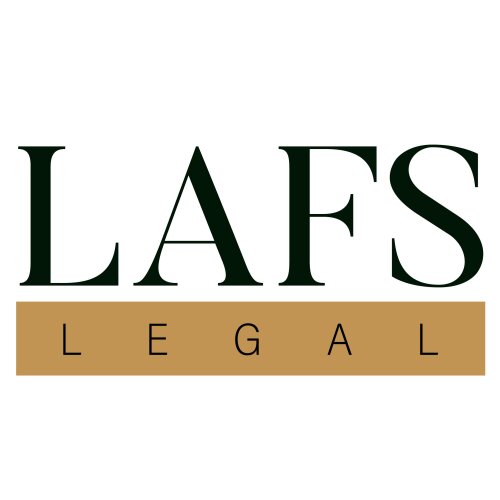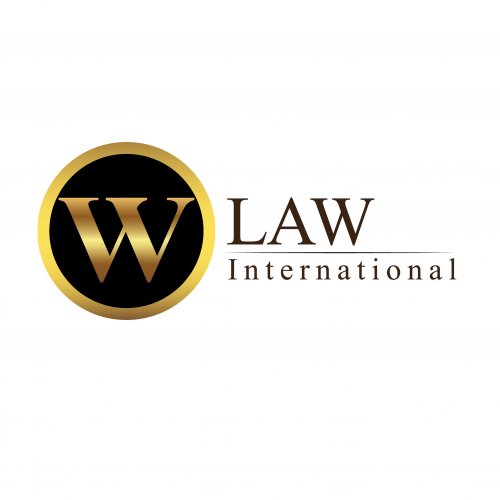Best Inheritance Law Lawyers in Bangkok
Share your needs with us, get contacted by law firms.
Free. Takes 2 min.
List of the best lawyers in Bangkok, Thailand
Legal guides written by Smart Legal Solutions:
- Main Legal Measures to Protect Foreign Investment in Thailand
- The importance of the geographical indications for the Thai economy
1. About Inheritance Law in Bangkok, Thailand
Inheritance law in Bangkok governs how a deceased person’s assets are distributed to heirs or beneficiaries under Thai law. The rules cover both with and without a will, and they apply to assets located in Bangkok as well as in other provinces. In Bangkok, as in the rest of Thailand, assets such as real estate, bank accounts, and shares pass according to the Civil and Commercial Code and court procedures.
Key principles include the order of heirs, statutory shares for close relatives, and the formal requirements for valid wills. Court involvement is common for probate, estate administration, and resolving disputes over validity or shares. Foreign nationals with Thai assets may face additional considerations for cross-border estates and local property transfers.
Working with a Bangkok-based solicitor or attorney can help ensure compliance with Thai formalities, accurate calculation of shares, and smooth transfer of titles or assets. Understanding local processes helps minimize delays and reduces the risk of post-mortem disputes.
“Thai inheritance matters are primarily governed by the Civil and Commercial Code and are handled through the courts for probate and distribution.” - Source: official Thai law resources
Sources and references: For the official text of the controlling laws, see government sources such as Krisdika (Legal Database) and the Court of Justice portal, which publish updated versions of inheritance provisions and court procedures.
2. Why You May Need a Lawyer
The following scenarios are concrete and common in Bangkok where legal guidance is essential to protect rights and avoid delays.
-
Disputes over an intestate share after a Bangkok family member dies without a will. A lawyer helps identify legal heirs, calculate statutory shares, and navigate court petitions for distribution when there is disagreement among relatives.
-
Challenging or validating a will when there is suspected fraud, coercion, or lack of testamentary capacity. A lawyer assists with evidence collection, witness testimony, and court arguments to uphold or invalidate a will.
-
Managing a deceased's Bangkok assets that include land or condo ownership. A lawyer guides probate, title transfers, and compliance with the Land Code and local property rules to avoid title disputes.
-
Preparing a will to control asset distribution and reduce conflicts among heirs. A lawyer can draft or supervise a notarial will or private will that aligns with Thai formalities.
-
Cross-border estates involving Thai assets and foreign heirs. A Bangkok attorney coordinates with foreign counsel to handle inheritance formalities and ensure proper jurisdictional issues are addressed.
-
Estate administration when there are debts, creditors, or business interests. A lawyer helps inventory assets, settle debts, and avoid personal liability for heirs beyond their statutory shares.
3. Local Laws Overview
Civil and Commercial Code (ประมวลกฎหมายแพ่งและพาณิชย์) - Inheritance provisions
The Civil and Commercial Code is the primary source governing succession, shares for statutory heirs, and bequests. It covers intestate distribution, testamentary dispositions, and the formalities required for valid wills. Bangkok courts apply these provisions in probate and estate administration matters.
Recent practice emphasizes accurate identification of heirs and compliance with Thai testamentary formalities to avoid later disputes. Lawyers routinely reference the Civil and Commercial Code when advising clients on will drafting and challenge procedures.
Source: Official law texts are published by Thailand’s government portals and the Royal Gazette system, accessible through Krisdika and Court resources.
Civil Procedure Code (ประมวลวิธีพิจารณาความแพ่ง) - Probate and court procedures
The Civil Procedure Code governs how probate petitions, settlements, and disputes are processed in Thai courts. It outlines filing requirements, timelines, notice procedures, and appellate rights in inheritance matters. Notaries and attorneys often assist clients in preparing petitions in the proper form for Bangkok courts.
For complex probate cases, adherence to procedural steps can determine the speed and outcome of the distribution process. Lawyers help ensure that all procedural prerequisites are satisfied and that filings are complete.
Land Code (พระราชบัญญัติโฉนดที่ดิน) - Transfer of land upon death
The Land Code sets rules for the transfer of real property to heirs in inheritance. It interacts with the Civil and Commercial Code when beneficiaries claim ownership of land in Bangkok. The code also governs restrictions on foreign ownership and transfer formalities for immovable property.
A lawyer can coordinate probate with a title company or land office to ensure clean transfer of title and resolve any encumbrances or joint ownership issues that arise during distribution.
Recent changes and trends note: There have not been sweeping, nationwide changes to inheritance statutes in the last few years, but official sources indicate ongoing updates to court procedures and administrative guidance. Always verify the current text with official portals such as Krisdika and Court of Justice prior to taking action.
4. Frequently Asked Questions
What is inheritance law in Bangkok, Thailand?
Inheritance law determines how a deceased person’s assets pass to heirs or beneficiaries under Thai law. It includes intestate rules and testamentary dispositions. Bangkok follows the same national framework with local probate procedures.
How do I start probate in Bangkok?
Begin by collecting the death certificate, assets list, and surviving relatives. Engage a Bangkok lawyer to prepare a probate petition and file with the appropriate court. The process may involve notifying heirs and paying debts.
When should I hire a Bangkok inheritance attorney?
Hire early if you anticipate disputes, hold assets in Bangkok, or need help drafting a will. Early involvement helps avoid delays and ensures proper documentation.
Where do I file an intestate succession case in Bangkok?
Intestate succession petitions are filed in the Bangkok civil court system. A local attorney can determine the correct court and file the petition with supporting evidence.
Why should I choose a Bangkok lawyer for inheritance disputes?
A Bangkok attorney understands local court practices, property laws, and procedural rules. They can guide you through complex filings and advocate for your statutory rights.
Can a will be challenged in Bangkok courts?
Yes. A will can be challenged on grounds like lack of capacity, coercion, fraud, or non-compliance with formalities. A lawyer can help present or defend such claims.
Should I get a notary for a will in Bangkok?
Notarial wills are common and generally considered strong in Thailand. A lawyer can advise whether a notarial will, a private will, or both suits your situation.
How much does a Bangkok inheritance attorney charge?
Fees vary by case complexity and attorney experience. Typical arrangements include fixed fees for specific tasks or hourly rates. Request a clear engagement letter with cost estimates.
Do I need Thai residency to inherit Thai property?
Residency affects certain ownership rights, especially for real estate. Cross-border property arrangements require careful planning with a Bangkok lawyer.
Is it possible to settle an inheritance dispute out of court in Bangkok?
Yes. Mediation or out-of-court settlements are common to reduce costs and time. A lawyer can mediate negotiations and draft a settlement agreement.
What documents are needed to file a probate in Bangkok?
Documents typically include death certificate, asset titles, bank statements, tax records, and identification for heirs. A lawyer helps compile and organize them.
How long does Bangkok probate take on average?
durations vary widely by case complexity and court workloads. Simple matters may take several months, while complex estates can extend beyond a year.
5. Additional Resources
-
Ministry of Justice (moj.go.th) - Oversees the administration of justice, supports civil matters including probate and notarial services, and provides guidance on legal procedures in Thailand.
-
Court of Justice of Thailand (coj.go.th) - Official portal for civil courts, court procedures, and public information on probate matters and case management in Bangkok and nationwide.
-
Krisdika (krisdika.go.th) - Official repository of Thai laws, including the Civil and Commercial Code and related inheritance provisions. It publishes updated acts and Royal Gazette notices.
“Official legal texts and court guidance are authoritative sources for understanding inheritance rights and procedures in Thailand.” - Observations based on Thai government portals
6. Next Steps
- Clarify your goal and list all Bangkok assets to be addressed in the estate plan or probate. Set a rough timeline for decision making.
- Gather key documents such as death certificate, will (if any), asset titles, bank statements, tax records, and family contact details.
- Consult a Bangkok-based solicitor who specializes in inheritance law to review documents and outline options within 1-2 weeks.
- Request a written engagement letter with scope, fees, and estimated timeline from the attorney before proceeding.
- Discuss whether a notarial will or private will best fits your goals and draft or update the will accordingly within 2-4 weeks.
- File the probate petition or intestate succession claim with the appropriate Bangkok court, guided by your lawyer, to begin distribution planning.
- Coordinate with potential executors, heirs, and tax considerations; aim for mediation if disputes arise to avoid lengthy litigation.
Lawzana helps you find the best lawyers and law firms in Bangkok through a curated and pre-screened list of qualified legal professionals. Our platform offers rankings and detailed profiles of attorneys and law firms, allowing you to compare based on practice areas, including Inheritance Law, experience, and client feedback.
Each profile includes a description of the firm's areas of practice, client reviews, team members and partners, year of establishment, spoken languages, office locations, contact information, social media presence, and any published articles or resources. Most firms on our platform speak English and are experienced in both local and international legal matters.
Get a quote from top-rated law firms in Bangkok, Thailand — quickly, securely, and without unnecessary hassle.
Disclaimer:
The information provided on this page is for general informational purposes only and does not constitute legal advice. While we strive to ensure the accuracy and relevance of the content, legal information may change over time, and interpretations of the law can vary. You should always consult with a qualified legal professional for advice specific to your situation.
We disclaim all liability for actions taken or not taken based on the content of this page. If you believe any information is incorrect or outdated, please contact us, and we will review and update it where appropriate.

















